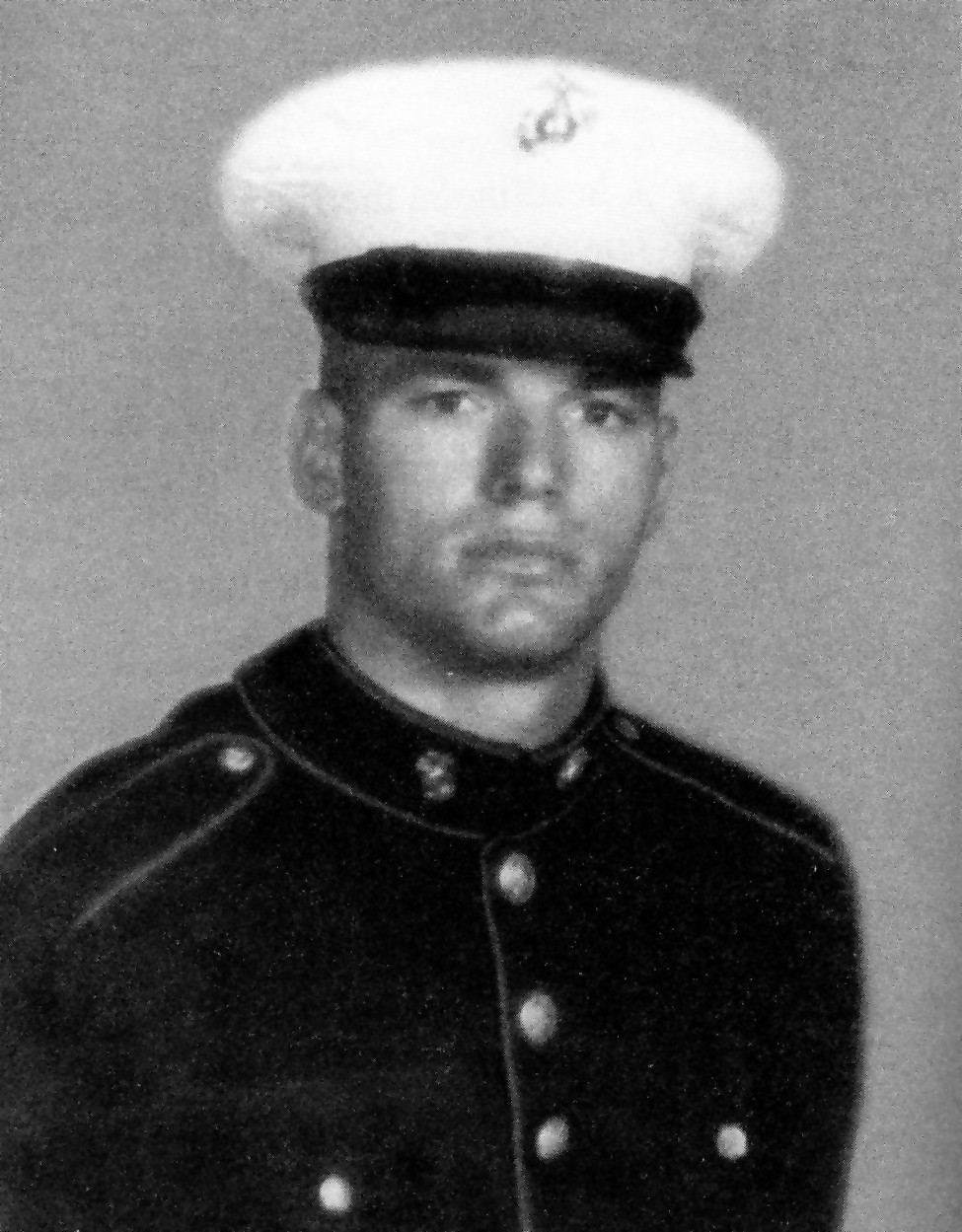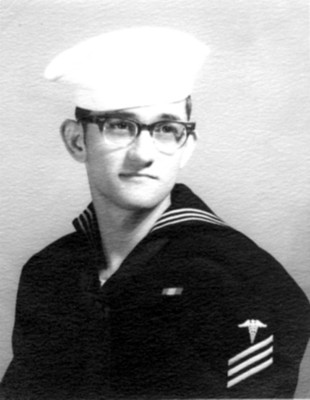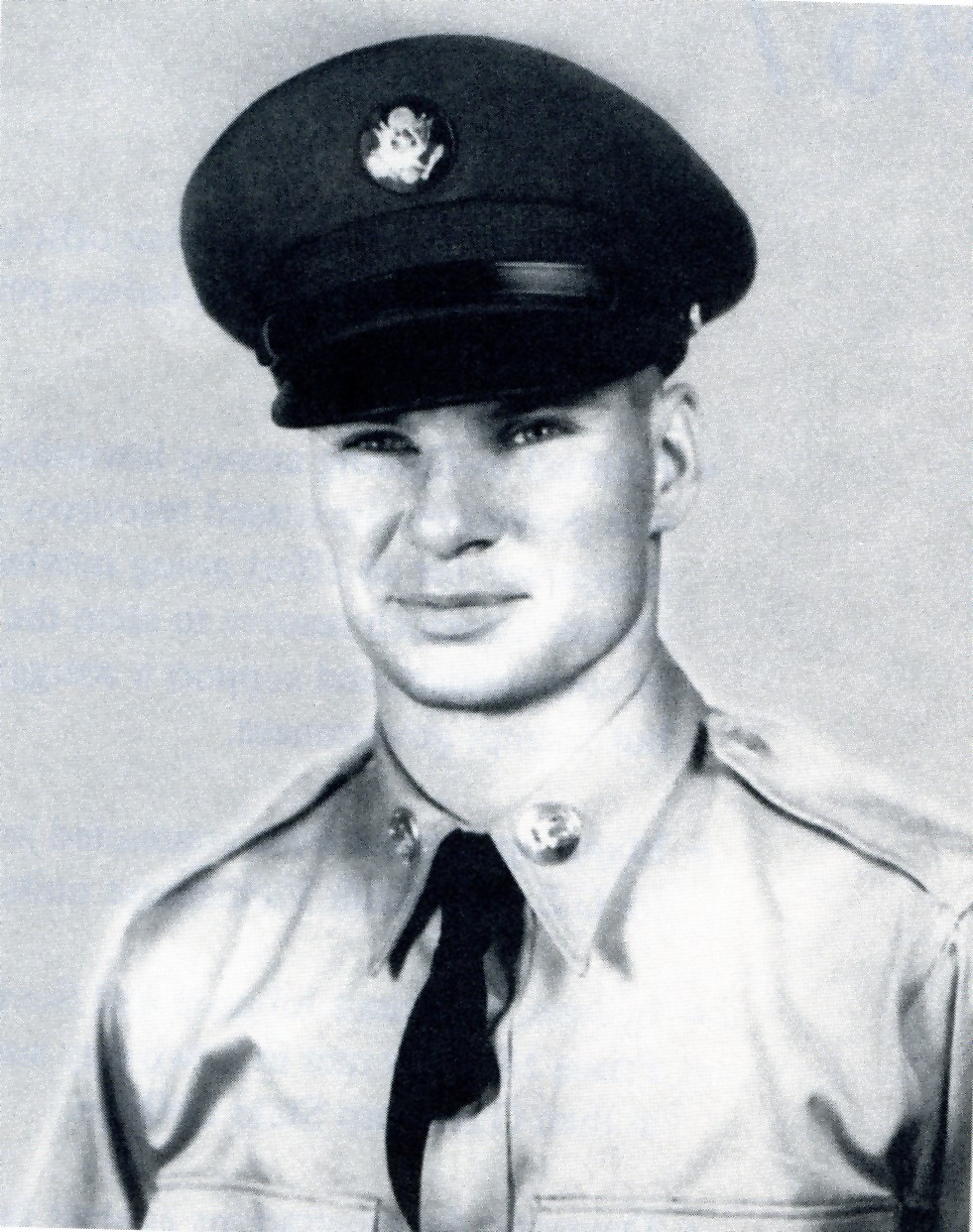
STEPHEN B KIRSCHNER - PVT
- HOMETOWN:
- mantua
- COUNTY:
- Gloucester
- DATE OF BIRTH:
- June 22, 1947
- DATE OF CASUALTY:
- January 08, 1968
- BRANCH OF SERVICE:
- Marines
- RANK:
- PVT
- STATUS:
- KIA
- COUNTRY:
- South Vietnam
Biography
Stephen B. Kirschner was born on June 22, 1947. His home of record is Mantua, NJ.
He served in the US Marine Corps and attained the rank of Private (PVT).
Kirschner was killed in action on January 8, 1968.
Steve
June 22, 1947-January 8, 1968
PVT, Marines Mantua, NJ
"My friends always told me how gorgeous he was. I was his sister, so I didn't look at him that way," Cass Ritchie, of Mantua, NJ, recalls. "But he was athletic, smart and very kind. He really cared about people. What more could you ask for?"
Jean Alleva remembers her younger brother playing in every pick up basketball, football and baseball game he could get into. "If there were no games going on, he would start one," she says. "I loved my brother so. Steve was shining with life. He was so tall and muscular, he seemed indestructible and I felt he was. I was wrong."
Both Cass and Jean had married and had started their own families when Stephen joined the Marine Corps. Bonnie Simone was ten and has a quite different recollection. "He was a wonderful big brother but at that age, I had no idea of the impact he had on my life," she reflects. "I've grown to miss him and feel much closer to him now in my heart and mind than ever. But at the time of his death, I was more aware of the sadness and anger going on around me. I just wanted to watch television."
Ann Kirschner has fond childhood memories of her brother. They were one year apart in age and would play together often. She remembers his affectionate teasing when she says, "I miss Stevie, I always will."
Stephen Kirschner enlisted in the Marines at eighteen after graduating from South Philadelphia High School in 1966. His family life had been turbulent and had taken him to many places. Besides Philadelphia, he lived in Bellmawr, Blackwood, Clayton and Mantua, NJ.
"I counted twenty schools that I went to," says Jean. "I'm sure it was about the same for Steve." He spent some time in California also, but in one of his letters, he said he wanted to settle in New Jersey because that was where his fondest memories were.
After his training at Parris Island, SC, and Camp Pendleton, California, Steve was sent to Vietnam in July of 1967. He was assigned to Headquarters Battery, 1st Battalion, 12th Marines, 3rd Marine Division. His duty station was Camp Caroll, which was about a half-mile south of the DMZ. There was always heavy fighting in that area, and Steve reflected in his letters what it was like:
You wanna trade places? You wouldn't believe how we live. We're lucky to have water to drink. I hope and pray this mess will end because it's awful. I've seen our own boys shot and killed by the enemy and many wounded. I'm over here with all the other guys, fighting for my loved ones at home and I'll serve my time.
Stephen was a good Marine. He worked hard and believed in what he was doing. In a letter home, he briefly mentioned his promotion to Lance Corporal, and then wrote of the sense of purpose that he and his comrades shared:
I'm one of many who are helping keep nations free that want to be free. The communists have their hands full fighting us because we hit back and hit back hard! We're gonna win because as Americans, we are warm and care about others. And I would go to war again so that you and all the wonderful people at home will live free.
By November of 1967, the anti-war sentiment back home was gaining strength and Steve responded to it the same way that most soldiers did:
It makes me mad when I hear about the people rioting at home. They probably think they're tough. Well, I'd like to take a few of my Marine buddies back home and show them what it is like to fight. I wish they would send them over here where you have to fight to stay alive. Oh well, it's probably the draft dodgers anyhow!
Steve took his bible to Vietnam. He was becoming more spiritual before he entered the Corps, and found comfort and guidance in much of what he read. He underlined passages and made his own index of meaningful verses in the front.
Jean realizes now how important his faith was. "He was looking for stability and I felt better afterwards knowing that he was so close to God," she says. "He read the Bible faithfully and I found a lot of peace in that."
Unfortunately, Steve's convictions landed him into some trouble. Some disparaging remarks had been made concerning his religion and after a verbal altercation, Steve was involved in a fight that ended with another Marine receiving two black eyes. He was severely disciplined by being reduced in rank to Private and given extra duty.
In a letter to his sister, Cass, he wrote:
I've never seen myself so angry. I've been trying to do what is right and stay out of trouble but when someone downs me for what I believe in, it's time to defend myself. I don't care if I go to jail. I know the good Lord will help me in one way or another.
Steve continued to write home, but something had changed. In one of his last letters, he wrote:
You have to put up with a lot over here and you run into some awful people. But I'm in good health and spirits. I'm trying to make the best of it.
On January 11, 1968, the family was notified that Stephen was listed as 'missing in action', as a result of a helicopter crash. They were understandably stunned. But the situation worsened when they were told that details were unavailable and would be forthcoming as soon as possible.
"We felt pretty helpless having to rely on the sketchy information they were giving us," recalls Cass. They did learn, however, that Steve had been granted an in-country R & R, and had been on his way to Da Nang for three days of easy living.
The crash was the single worst air loss of the war. There were forty-six people aboard. Almost two months passed, when, in a letter dated March 4, 1968, Assistant Secretary of the Navy Charles Bowsher wrote the family that Stephen was a passenger aboard a CH-53A transport helicopter on January 8th. The helicopter crashed into a steep mountain peak approximately eighteen miles south of Dong Ha, Quang Tri Province. All forty-six passengers and crew were reported missing. Search aircraft located the wreckage, but because of adverse weather conditions, a reconnaissance team could not be inserted until January 19th. It was learned then that the aircraft was totally destroyed by both the impact and the resulting intense fire. There was no possibility of survivors. The search team was only able to spend about twenty minutes at the site before weather and tactical conditions forced their extraction.
A recovery force was able to reach the crash site nine days later, but again failed to remove any remains because of deteriorating weather. The letter states that on February 21, the status of Stephen was changed from 'missing in action' to 'died, accidental cause'. The family was assured that recovery efforts would continue as soon as conditions permitted.
It was July before the site had been secured, and the remains of those who died were returned to the U.S. There had been forty-one sets of remains that were unidentifiable. Two were civilians and the rest were soldiers, sailors, and Marines. The government arranged a mass burial at Jefferson Barracks National Cemetery, near St. Louis, on July 23, 1968. Transportation for family members was provided, and the ceremonies included an Army band, full military honors and a twenty-one gun salute. More than two-hundred relatives and friends attended. A gravesite overlooking the Mississippi River was chosen and a huge floral display adorned the site.
The memorial service should have been remembered for the honor and reverence shown to the families, but it is not. Eight caskets were used to contain the remains of all forty-one victims.
"It made us feel pretty bad," Cass recalls. "It totally shocked us. We couldn't believe they didn't at least display forty-one caskets, even if they were empty. The families all had this vision that was too terrible to think about anyway. We were really angry about that."
"As terrible as we felt, I think that's what stayed with me over the years," adds Jean. "And when I hear about the MIAs that still may be alive, I often allow myself to think, 'What if Stephen somehow made it out of there? Wouldn't that be something?'"
Stephen's mother never got over the loss. She had a life with many broken dreams but always cherished her children. Bonnie recalls what she said about three years after Stephen died. "I heard her crying in her room one night and I was in the room next door," she remembers. "She said that when Stephen was killed, she lost everything. And when her husband reminded her that she still had four daughters, she said, 'That doesn't mean anything. I lost Stevie!'"
Bonnie tried to understand then and realizes now, as a mother, what those words meant. "I didn't take that as though she didn't love us. I took it that she lost a child and that was her whole world. She could've had twelve children and that's the way she would have felt about losing any of us."
"As rough a life as she had, she was always proud of the fact that she 'kept her chicks together', no matter what happened," says Bonnie. "I didn't see it that way then, because as a teenager, I was always butting heads with her. But as I got older, I realized she was right. She was a center point to all our lives and did keep us together."
Not a day goes by that Stephen is not thought about. Those who loved him the most remember him dearly. "We always wonder what Steve would have made of himself," says Cass. "I think all our lives would be more fulfilled with him around."
Food, girls and music were high on his list of the good things in life. He did not drink or smoke. His religious beliefs gave him a solid foundation that he missed growing up. He was determined to return home to build a family. He loved his sisters and their children, and wanted to protect them. In one of his last letters home, he said so. If anyone ever tries to hurt any of you, they better just stand by.
Excerpt from They Were Ours: Gloucester County's Loss Vietnam
by John Campbell
Used with permission of author
Sources: John Campbell and NJVVMF.
Remembrances
Be the first to add a remembrance for STEPHEN B KIRSCHNER
Help preserve the legacy of this hero, learn about The Education Center.
LEARN MORE

